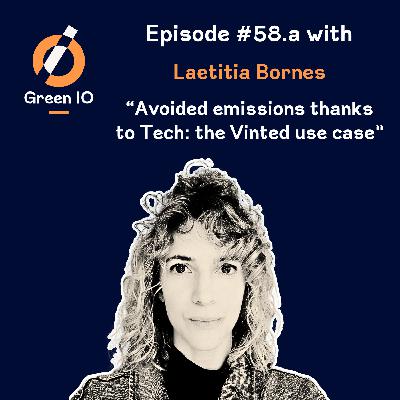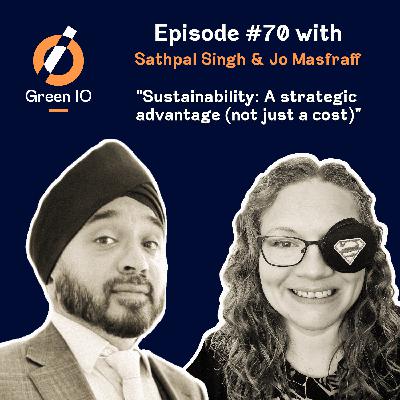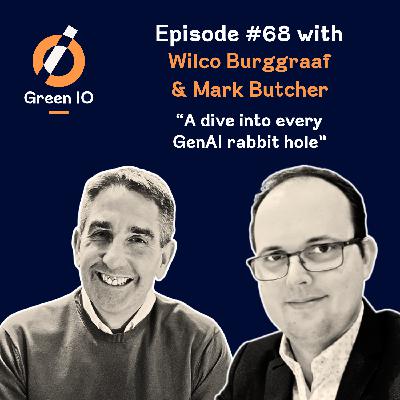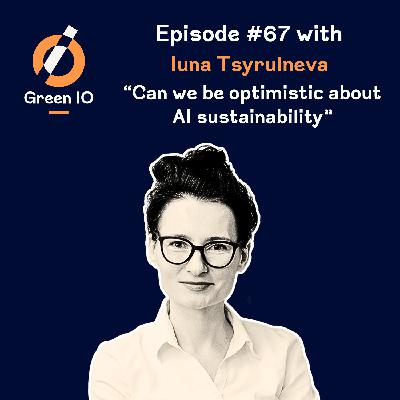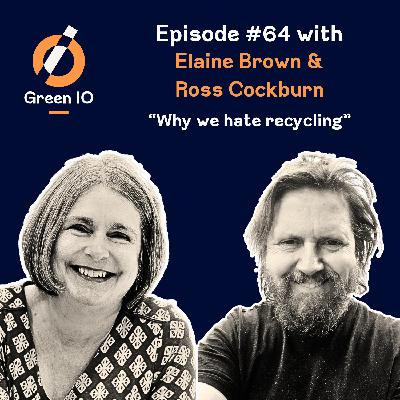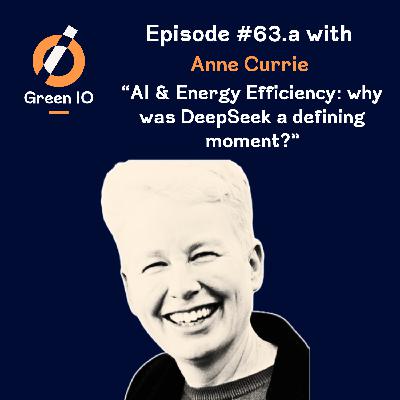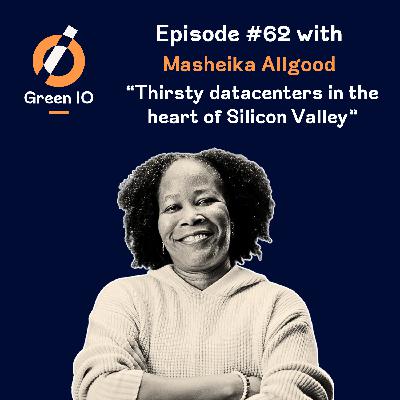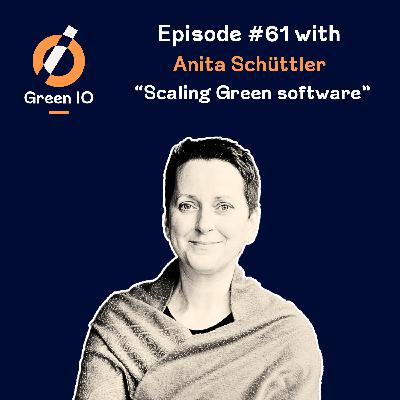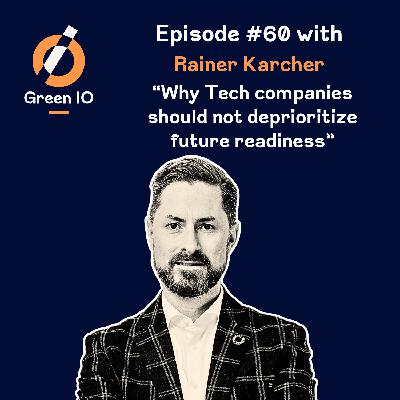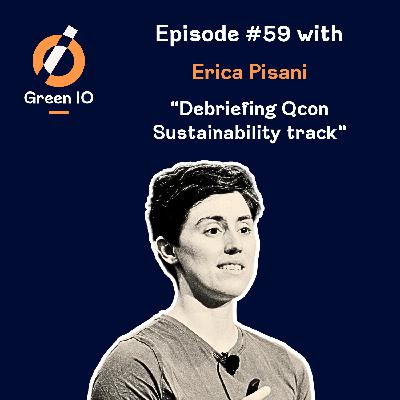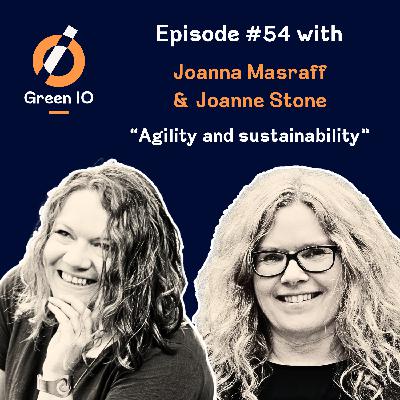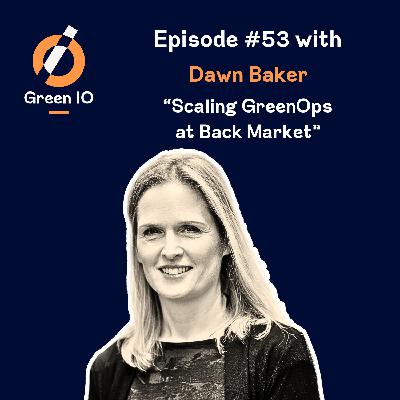#58a Avoided emissions thanks to Tech: the Vinted use case with Laetitia Bornes - Part 1
Update: 2025-05-20
Description
Can a digital company be “carbon negative”? What should we think of these claims of “tons of carbon avoided” coming from 2nd hand platforms such as Vinted or Back Market?
Dr Laetita Bornes conducted research on Vinted claims, investigating its data sources and the methodology used with her colleague David Ekchazer. Their findings were surprising, enlightening for the IT sector and nuanced! Among the ones she share with Gaël Duez in this first part of the episode were:
- The pitfalls of assessing "Tech for Good" even using Life-Cycle Analysis,
- The complexity of rebound effects and other indirect effects,
- How to improve things as a Designer, … and as a CEO!
- The need for a systemic perspective and some tools to build it,
and much more!
And because this conversation was so rich that it couldn’t be reduced to a one hour discussion, this episode comes in 2 parts, the first one focusing on the Vinted use case and the second one where we discussed modelling, the scientific method and Systems Thinking in general.
❤️ Subscribe, follow, like, ... stay connected the way you want to never miss an episode, twice a month, on Tuesday!
📧 Once a month, you get carefully curated news on digital sustainability packed with exclusive Green IO contents, subscribe to the Green IO newsletter here.
📣 Green IO next Conference is in Munich on July 2nd and 3rd. Green IO listeners can get a free ticket using the voucher GREENIOVIP. A small gift for your huge support. 🎁
Learn more about our guest and connect
- Laetitia’s LinkedIn
- Laetitia’s website presenting her work in more detail
- Green IO website
- Green IO Slack
- Gaël Duez's website
📧 You can also send us an email at contact@greenio.tech to share your feedback and suggest future guests or topics.
Laetitia's sources and other references mentioned in this episode
- The Rebound Archetypes tool co-designed by Laetitia Bornes
- The Magnitude tool designed and co-developed by Laetitia Bornes
- Decision-Making Under Environmental Complexity: The Need for Moving from Avoided Impacts of ICT Solutions to Systems Thinking Approaches by Laetitia Bornes and David Ekchajzer
- Systemic Sustainable HCI: Integrating Collaborative Modeling into a Design Process to Address Rebound Effects by Laetitia Bornes
- Les émissions évitées de la numérisation by Gauthier Roussilhe
- Vinted Climate change impact report
- Donnella Meadows’ Thinking In Systems: A Primer
- ADEME report: Environmental assessment of the direct and indirect effects of digital technology on use cases
- The Ministry for the Future (Kim Stanley Robinson)
- Your Life in Numbers: Modeling Society Through Data (Pablo Jensen)
- Leverage Points: Places to Intervene in a System (Donella Meadows)
- Finding (a theory of) Leverage for Systemic Change: A systemic design research agenda (Ryan Murphy)
- Relating Systems thinking and Design (RSD) conference
- "Must read" books about the modelling part of systems thinking ("first wave" = "hard systems thinking"):
- Important authors regarding the "second wave" of systems thinking ("soft systems thinking"):
Transcript (auto-generated)
Laetitia Bornes (00:00 )
We shouldn't reduce this complexity to a single figure. I don't think we should stop a second hand platform at all, but I think we should rethink the way they are designed, service design, the platform design, the business model design, so that we improve the carbon emissions or maybe other social environmental
Gael Duez (00:26 )
A lot of phones raised in the air at Green IO of Paris last year when her colleague, David Ekchazer shared their findings on stage. Not sure it was good for the people's individual footprint, but a clear signal of the interest of the participants for the topic of avoided emissions and how to assess the true impact of tech for good companies. And it was indeed big numbers which were discussed there, with Vinted, the second-hand marketplace at Behemoth now in the circular economy field, claiming they avoided 680 kilotons of CO2 equivalent thanks to their operation. It's not the only company doing so. Backmarket, another platform specialized in second-hand electronic goods, assessed the greenhouse gas emissions saved thanks to its operation to have reached accumulated 1 million tonne of CO2 equivalent in 2023. A CTO was in a Green IO podcast earlier this year and she made no mystery that these statements and their overall mission is a massive asset for employee engagement and retention, both PhD students, decided to apply the latest research in systemic modeling to investigate these claims and their findings were surprising and enlightening for the IT sector and nuanced. Yes, it's still possible to have a calm discussion about a complex topic these days.
Today, I'm delighted to be joined by Laetitia, the co-author of this paper, who couldn't be on stage at Green IO Paris because she was finalizing her thesis defense before completing her PhD in Human-Computer Interaction, Systems Engineering and Systemic Design in Toulouse, France, Laetitia worked for five years as a UX designer. Her research has resulted in the development of a methodology and tools to enable designers and decision makers to address the complexity of sustainability with a particular focus on the indirect effects of digital technologies. Specifically, she has developed Rebound Archetypes, a workshop and a card game for anticipating and mitigating rebound effects, and Magnitude, a software for the consequential modeling of direct and indirect effects to inform environmental decision-making. So, welcome on the show, Laetitia, and congrats for your graduation. Shall I call you Dr. Borne now?
Laetitia Bornes (03:02 )
Thank you very much for your invitation. And yes, you can call me that since last December, but really you don't have to. You can call me Laetitia.
Gael Duez (03:13 )
Okay, so let's stick to Laetitia. A bit of context first about these IT companies positioning themselves as tech for good companies. And honestly, from an outsider perspective, it seems pretty obvious that they do. So the companies enabling or accelerating the circular economy seem to be part of the good guys in our fight to make our economic system, would say, compatible with the respect of the planetary boundaries for sustainable human life on Earth. Here the struggle seems to quantify this positive impact, this handprint, the opposite of a footprint, which has gained some popularity since the 90s. Vinted tried it and you somehow debunked or maybe shall I say fine-tuned its claim. Could you explain to us why you conducted this study and its main findings?
Laetitia Bornes (04:09 )
Yes, of course. So that's a big question. So I will try to answer gradually and you can interrupt me if it's too long. So first of all, I would like just to add some nuance
Comments
In Channel

